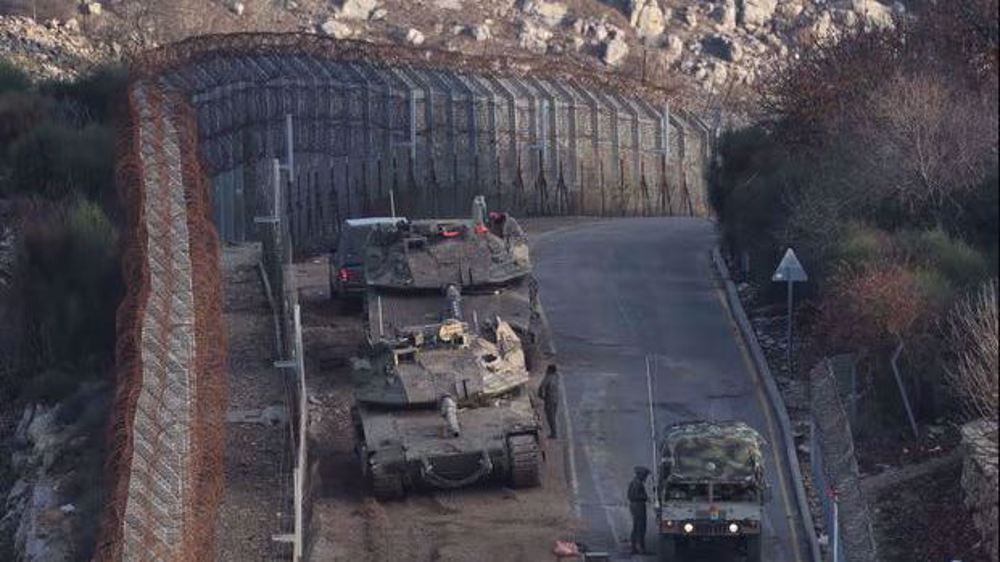
Israeli troops are seen at the border between the occupied territories and Syria in the Israeli-occupied Golan Heights on December 9, 2024. (Photo by EPA)
Doha, December 10 (RHC)-- Qatar, Saudi Arabia and Iraq have condemned Israel’s seizure of Syrian land after the fall of President Bashar al-Assad’s government.
After armed groups, led by Hay'at Tahrir al-Sham (HTS) militants, captured the Syrian capital, which led to the fall of President Bashar al-Assad’s government on Sunday, Israel swiftly moved in and seized the buffer zone separating the Israeli-occupied Golan Heights from the rest of the Syrian land.
In a statement on Monday, Qatar’s Foreign Ministry described the Israeli move as “a dangerous development and a blatant attack on Syria’s sovereignty and unity as well as a flagrant violation of international law.”
“The policy of imposing a fait accompli pursued by the Israeli occupation, including its attempts to occupy Syrian territories, will lead the region to further violence and tension,” the ministry warned.
Also on Monday, the Saudi Foreign Ministry slammed the Israeli actions, saying they confirm “Israel’s continued violation of the rules of international law and its determination to sabotage Syria’s chances of restoring its security, stability and territorial integrity.” The kingdom urged the international community to condemn the Israeli moves, emphasizing that the Golan Heights is an occupied Arab territory.
Iraq also decried the Israeli aggression as a “grave violation under international law.” Baghdad “stresses the importance of maintaining Syria’s sovereignty and integrity,” read a statement by the Iraqi Ministry of Foreign Affairs.
The ministry also urged the UN Security Council to “uphold its responsibility and condemn this aggression” and “put an end to it.”
In 1967, Israel waged a full-scale war against Arab territories, during which it occupied a large swathe of Golan and annexed it four years later – a move never recognized by the international community.
In 1973, another war broke out; and a year later, a UN-brokered ceasefire came into force, according to which Tel Aviv and Damascus agreed to separate their troops and create a buffer zone in the Heights.

